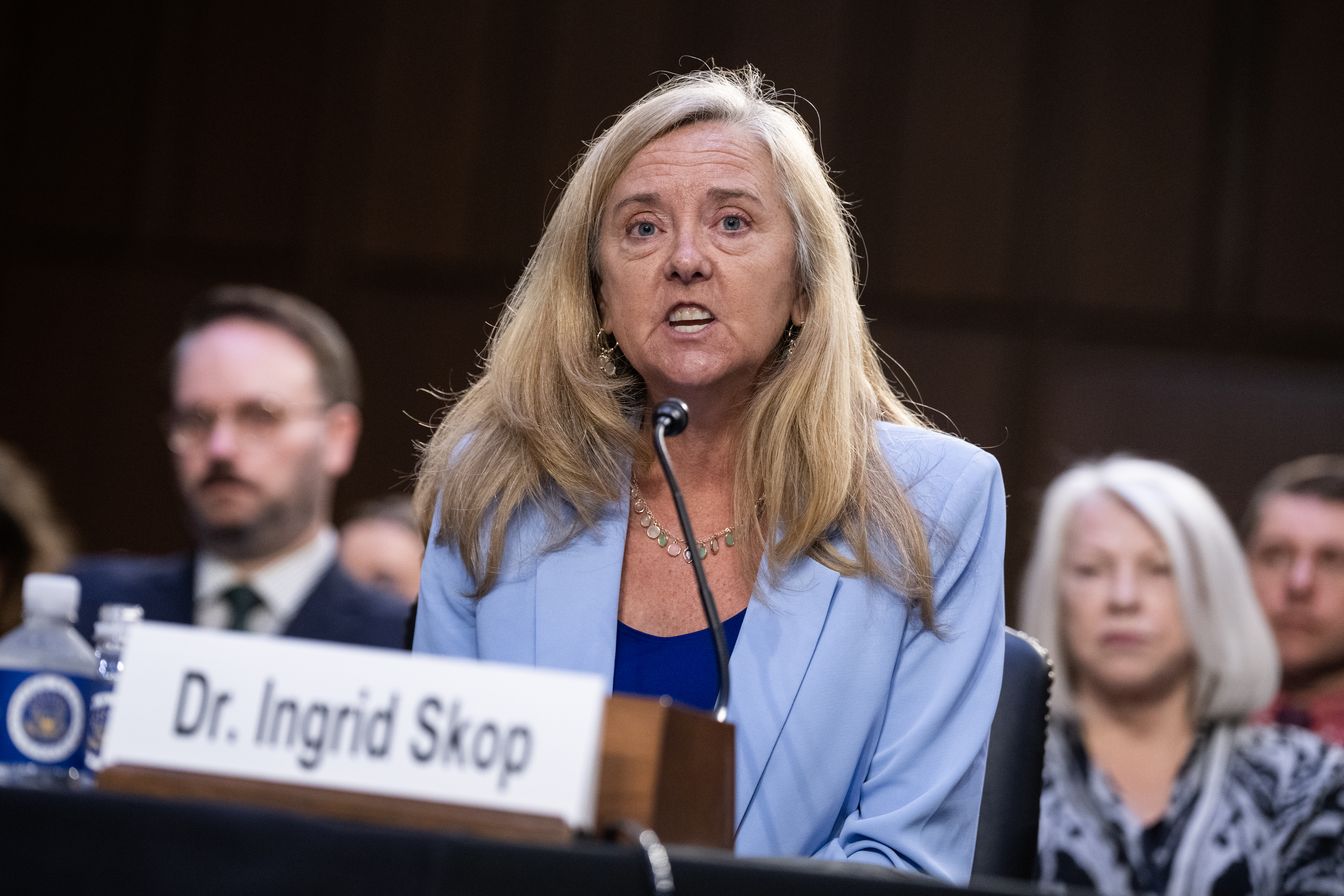The good news out of oral argument in FDA v. Alliance for Hippocratic Medicine, the conservative legal movement’s latest effort to force people to carry pregnancies to term against their will, is that the Supreme Court probably will not ban medication abortion between now and the Fourth of July. The bad news is that in a judiciary dominated by conservative activists, the Supreme Court might ban medication abortion in the not-so-distant future, if their Republican counterparts in elected office don’t beat the justices to the punch.
The case is a challenge to the FDA’s two-decades-old approval of mifepristone, one of two drugs used in a common medication abortion regimen. The plaintiff is the Alliance for Hippocratic Medicine, an organization incorporated weeks after the Court overturned Roe v. Wade to serve as a sock puppet for whatever misogynistic moonshot the freaks at Alliance Defending Freedom felt like taking next. Its member doctors do not actually prescribe mifepristone to their patients, but instead claim that if women experience complications from mifepristone and require in-person medical treatment, they—the AHM doctors—might be forced to help facilitate abortion. In addition to offending their deeply held moral and religious beliefs, the doctors claim that this diverts their time and attention from other patients, and causes them to suffer “substantial mental and emotional distress.”
Perhaps it will shock you to learn that AHM’s insinuations about the dangers of mifepristone are wildly overstated. A New York Times review of 101 studies found that in “a vast majority” of them, more than 99 percent of patients did not experience serious complications, and all of them—all 101 studies, conducted in 26 countries over more than 30 years—concluded that abortion pills are safe. The complication rate for childbirth is more than four times the complication rate for medication abortion, which sort of belies the notion that what these doctors really care about is the “safety of their patients” in any meaningful sense. According to CNN, for all the caterwauling AHM does about the possibility of one day treating a patient experiencing complications from mifepristone, thus involuntarily rendering them complicit in what they believe to be unforgivable sin, none of the doctors who submitted declarations in this case have actually had to do so.

Alliance Defending Freedom lawyer Erin Hawley, better known for other, equally bad life choices (Photo by Anna Rose Layden/Getty Images)
Even setting aside AHM’s shitty math, this theory of standing is wild: that a doctor’s obligation to provide care is legally actionable because the genesis of a potentially life-threatening emergency—something which, as far as I understand the practice of medicine, doctors might reasonably expect to encounter on occasion—makes them upset. As is the case in many lines of work, being a medical professional sometimes involves interacting with people whose choices one might not personally condone. Just by way of example, I might hate looking at Sam Alito’s dumb face and never wish to see or think about it again, but alas, I cannot drag him into court every time a Getty photographer snaps his picture.
Peeling back a few more layers of the reactionary onion confirms that none of these doctors, many of whom maintain murky affiliations with organizations that profess enthusiasm for various flavors of bigotry, are serious people or deserve to be treated as such. Dr. Tyler Johnson is an ER doctor better known as the Indiana lawmaker who wrote the state’s ban on gender-affirming care. Dr. Donna Harrison hasn’t practiced medicine since 2000, the year mifepristone was first approved by the FDA. Dr. Regina Frost-Clark is a member of the Christian Medical and Dental Associations, whose members she refers to as “soldiers in the army of God.” Dr. Quentin Van Meter leads a fringe association of pediatricians united by their belief that established standards for pediatric care are too woke.
Dr. Ingrid Skop, a San Antonio obstetrician, once assured lawmakers that nine- and ten-year-olds raped by their father or brother could safely carry a baby to term. She has also testified about the putative dangers of abortion based on unvetted blog posts that she, by her own admission, might have accidentally plagiarized. At a deposition in 2020, she explained that she is “not really a good researcher,” which is generally not a thing you want to hear “experts” conceding under oath.

Skop testifying before Congress, April 2023 (Tom Williams/CQ-Roll Call, Inc via Getty Images)
The most remarkable thing about Alliance for Hippocratic Medicine is that it made it to the Supreme Court in the first place. Apportioning credit and/or blame starts with Matt Kacsmaryk, an anti-abortion activist who in his capacity as a Trump-appointed district court judge signed off on 100 percent of this embarrassing, credulous bullshit. An three-judge panel of the Fifth Circuit Court of Appeals—all Republican appointees—made some revisions to Kacsmaryk’s order, but left the door open for the justices, if they were so inclined, to ban or restrict access to a medication used in two-thirds of all abortions in the United States. This is the inevitable consequence of Trump’s Federalist Society-assisted efforts to remake the federal bench, including a Court now controlled by a six-justice conservative supermajority: The asks are always getting more ambitious and the legal theories more extreme, because conservative lawyers know that if they play enough games officiated by friendly refs, they’ll be able to put wins on the board no matter how long the odds might seem.
After oral argument, the smart money is on the Court tossing this case on standing grounds; as my colleague Madiba Dennie noted earlier this week, when Neil Gorsuch, patron saint of dubious right-wing religious plaintiffs, is openly skeptical about standing, the Court is probably not going to find it. But Justices Clarence Thomas and Samuel Alito used the occasion to boost the idea, popular in Republican circles, that a long-dormant federal obscenity law called the Comstock Act can and should function as a fully-baked, already-on-the-books national abortion ban. Alito in particular could barely contain his excitement, calling Comstock a “prominent” law but referring to it only by its location in the U.S. Code, as if hoping that by hiding behind an arcane-sounding citation to chapter and verse, he’d be able seize more power to make decisions about the health of millions of people without any of them noticing.
Alliance for Hippocratic Medicine is a stupid case brought by deranged weirdo grifters who could not be bothered to put together a coherent argument. The problem is that the next time mifepristone comes before the justices, a less stupid case—perhaps one that rests on a marginally more coherent argument, and that has fewer deranged weirdo grifters attached to it—could very well succeed. For the conservative legal movement, the purpose of AHM is to set the bar for future attacks on medication abortion and reproductive freedom. It won’t take much to clear it.




